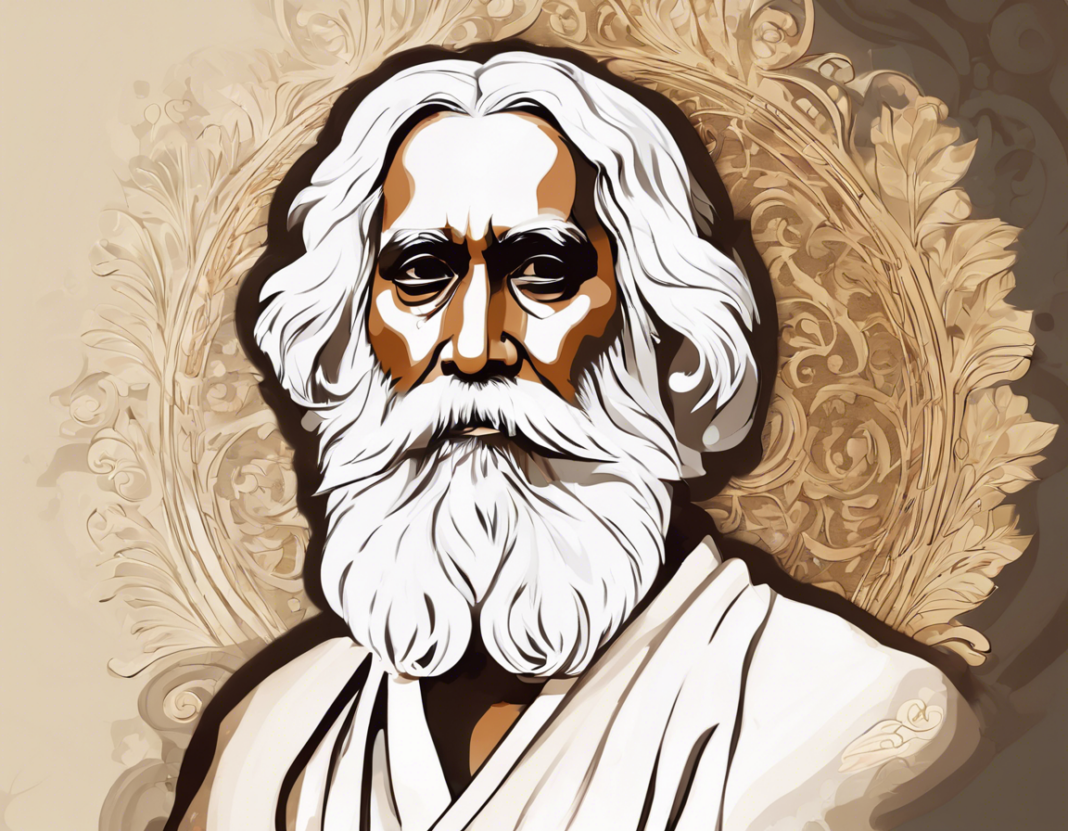Rabindranath Tagore Jayanti: Honoring the Legacy of an Iconic Nobel Laureate
Each year, on the 7th of May, India and Bangladesh celebrate Rabindranath Tagore Jayanti to commemorate the birth anniversary of one of the greatest figures in literature and arts – Rabindranath Tagore. Tagore’s contributions to literature, music, art, education, and social reformation have left an indelible mark on the world, earning him the prestigious Nobel Prize in Literature in 1913. Let’s delve into the life, works, and enduring legacy of this multifaceted personality.
Early Life and Education
Rabindranath Tagore was born on May 7, 1861, in Kolkata, India, into a prominent Brahmo family. He was the youngest of thirteen children, and his early upbringing was deeply influenced by the cultural and intellectual environment of Bengal Renaissance. Tagore was home-schooled, and he showed a keen interest in literature, music, and art from a young age. His father, Debendranath Tagore, a noted philosopher and social reformer, played a significant role in shaping Tagore’s worldview.
Literary Legacy
Tagore’s literary genius transcended boundaries and encompassed poetry, short stories, novels, plays, essays, and songs. His writing reflected a deep spiritualism, humanism, and a profound connection with nature. Some of his notable works include Gitanjali, Kabuliwala, Chokher Bali, and Gora. His poetic works, in particular, are celebrated for their lyrical beauty and philosophical insights.
Music and Art
Apart from being a prolific writer, Tagore was also a talented composer and musician. He composed over 2,000 songs, collectively known as Rabindra Sangeet, which continue to be an integral part of Bengali culture and music heritage. Tagore’s compositions are characterized by their melodic simplicity, lyrical depth, and emotional richness.
Educational Reforms
Tagore was a visionary educationist who founded Visva-Bharati University in Santiniketan, West Bengal. This institution was based on the principles of Brahmo Samaj and Santiniketan, emphasizing a holistic approach to education that bridged the gap between the East and the West. Visva-Bharati became a melting pot of artistic, intellectual, and cultural exchange, attracting scholars and students from around the world.
Social Reformer
Tagore’s humanitarian outlook and commitment to social justice are evident in his works and actions. He was a vocal critic of British imperialism and a staunch advocate for India’s independence. Tagore used his literary prowess to raise awareness about societal issues and champion the cause of universal humanism.
Legacy and Influence
Rabindranath Tagore’s impact extends far beyond his literary achievements. His philosophy of universalism, harmony of religions, and global interconnectedness resonates even today. Tagore’s works have been translated into numerous languages and continue to inspire artists, writers, and thinkers worldwide. His teachings on love, nature, spirituality, and the human experience remain timeless and relevant.
Celebrating Rabindranath Tagore Jayanti
On Rabindranath Tagore Jayanti, people across India and Bangladesh pay tribute to Tagore’s enduring legacy through cultural programs, poetry recitations, musical performances, art exhibitions, and seminars. Schools and universities organize special events to commemorate Tagore’s contributions, and his literary works are revisited and celebrated.
FAQs (Frequently Asked Questions)
1. What is Rabindranath Tagore famous for?
Rabindranath Tagore was a renowned poet, writer, musician, artist, educationist, and social reformer. He is best known for his literary masterpiece Gitanjali which earned him the Nobel Prize in Literature in 1913.
2. Why is Rabindranath Tagore Jayanti celebrated?
Rabindranath Tagore Jayanti is celebrated to mark the birth anniversary of Rabindranath Tagore, honoring his contributions to literature, music, art, education, and social reform.
3. What is Rabindra Sangeet?
Rabindra Sangeet refers to the songs composed by Rabindranath Tagore. These songs, numbering over 2,000, are an integral part of Bengali culture and are known for their lyrical depth and emotional resonance.
4. What is Visva-Bharati University, and why is it significant?
Visva-Bharati University, founded by Rabindranath Tagore, is a renowned institution in West Bengal known for its emphasis on holistic education, cultural exchange, and internationalism. It is significant for its unique pedagogy and creative environment.
5. How did Rabindranath Tagore contribute to social reforms?
Rabindranath Tagore was a vocal advocate for social justice, women’s rights, and India’s independence. Through his writings and actions, he addressed societal issues and promoted universal humanism.
In conclusion, on Rabindranath Tagore Jayanti, let us pause to remember and celebrate the life and works of this visionary poet and philosopher whose words continue to resonate across generations and inspire us to strive for a more enlightened and compassionate world.
